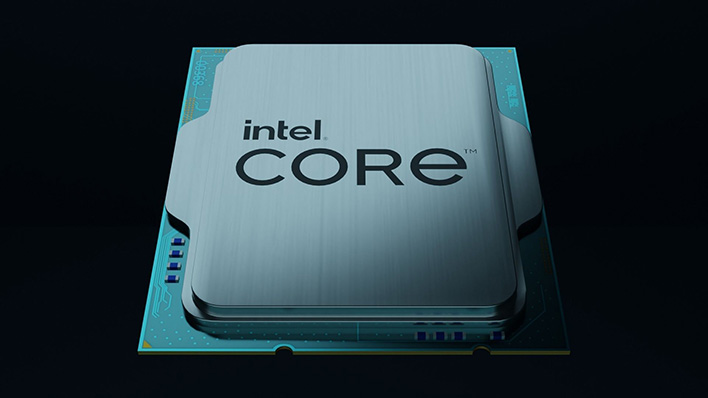Core i5-14600K Hits Same 5.3 GHz Boost Clock As Core i5-13600K In New Benchmark
If it's an engineering sample, we can expect the full production variant to clock noticeably higher than the i5-13600K

Intel's upcoming Core i5-14600K mid-range Raptor Lake Refresh CPU — which will vie for a spot in our Best CPUs list soon, was benchmarked in Geenbench 6 as reported by @BenchLeaks on X (Twitter). The benchmark results reveal that the chip only hit 5.3GHz during the benchmark run, which is the same max turbo frequency as the i5-13600K. Despite this, the chip managed to pull ahead of its predecessor in the Geekbench scores, by up to 11%.
In the single-core result, the new Raptor Lake Refresh chip scored 2819 points, enabling the CPU to outperform the Core i5-13600K by 5.7% in the same benchmark. In the multi-core benchmark, the 14600K expanded its performance superiority to 11.2% compared to its predecessor, again, despite the fact that both chips are operating at virtually identical clock speeds.
[GB6 CPU] Unknown CPUCPU: Intel Core i5-14600K (14C 20T)Min/Max/Avg: 5090/5289/5253 MHzCodename: Raptor LakeCPUID: B0671 (GenuineIntel)Single: 2819Multi: 16666https://t.co/xzI9dQ7NRESeptember 29, 2023
The benchmark results are impressive, due to the fact both chips are reportedly operating at identical clocks. But it is worth taking these results with a pinch of salt since we don't know the full system specs of the 14600K or 13600K test systems. For all we know, the 14600K could be operating with substantially faster memory enabling it to run quicker in Geekbench 6.
Nonetheless, the clock speeds reported by Geekbench 6 are the most interesting aspect of the 14600K benchmark results. Even though the clock speeds aren't impressive, the chip we are looking at is probably an engineering or pre-production sample, meaning that the chip will have higher clocks in the future once it's production-ready. If true, the results we're seeing from this pre-production/engineering sample are quite good, as we're usually accustomed to seeing lower clock speeds of engineering samples compared to their predecessors.
What we don't know is how high Intel will clock the full retail production 14600K, that will depend on how much clock speed they can wring out of its refreshed Raptor Lake architecture. But if previous rumors are anything to go by, the 14600K could potentially be clocked as high as 5.7-5.9GHz — as long as the i7 and i9 variants are clocked at 6GHz or greater.
Raptor Lake Refresh's launch date is fast approaching so we will know soon enough where Intel will clock its next-generation mid-range desktop chips.
Get Tom's Hardware's best news and in-depth reviews, straight to your inbox.

Aaron Klotz is a contributing writer for Tom’s Hardware, covering news related to computer hardware such as CPUs, and graphics cards.
-
Alvar "Miles" Udell I'm glad there's a frequency wall so AMD and Intel are having to work on focusing IPC gains again, which will also benefit mobile and server chips greatly.Reply -
peterf28 There will be a second refresh (15th gen) also compatible with lga1700, b760 and ddr4 ?Reply -
TerryLaze Reply
Still, 6to11% gain in performance even if you can't get any higher clocks out of the 14th gen. They do show 5253 MHz avg clocks though, so maybe that is why 14th is faster, it can hold higher clocks for longer even if the max clocks are the same, just my guess.mdd1963 said:"should have higher clocks..."
:)
The benchmark results reveal that the chip only hit 5.3GHz during the benchmark run, which is the same max turbo frequency as the i5-13600K. Despite this, the chip managed to pull ahead of its predecessor in the Geekbench scores, by up to 11%.
In the single-core result, the new Raptor Lake Refresh chip scored 2819 points, enabling the CPU to outperform the Core i5-13600K by 5.7% in the same benchmark. In the multi-core benchmark, the 14600K expanded its performance superiority to 11.2% compared to its predecessor, again, despite the fact that both chips are operating at virtually identical clock speeds.
Edit: A CPU with 5.3Ghz is a ready for market product, engineering samples are way slower than normal, not just one or a few hundred Mhz.